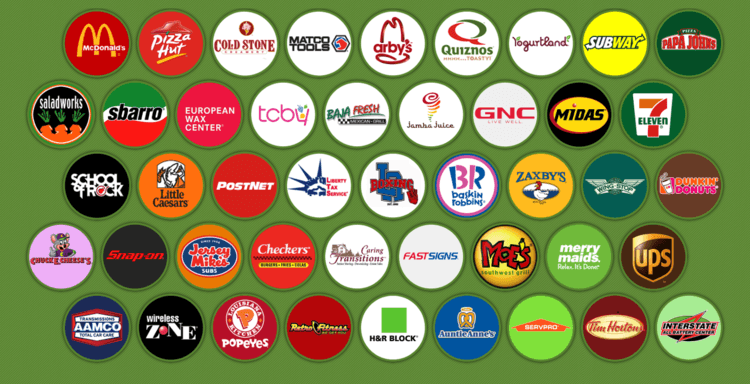
Have you ever realized just how many franchise companies you pass in a given day? Most think of the top fast food chains when they think of popular franchise brands. Yet there are thousands of concepts that offer franchise opportunities in over 300 different business categories, according to the IFA.
How Much Did That Franchise Cost?
With every franchise unit you see comes an individual investor, which leads many to ask – how much does it cost to invest in a franchise?
The simple answer is that it can range from a few thousand to a few million. There are several factors that affect the overall cost. Does the business require a brick and mortar location? If so, the investment is likely to be at least six figures. The larger the facility the higher the investment. The amount of equipment also needs to be considered. A quick service restaurant (QSR) with ovens and fryers will certainly cost more than a tutoring center occupying the same amount of space. In many cases, owning the real estate that the franchise location resides on is a part of the investment, which obviously inflates the entire cost.
On the other end of the spectrum is a mobile or home based business. What such businesses lose in the marketing exposure brick and mortars have from drive by traffic, they gain from a lighter overall investment. A home based business, such as a travel agency, only requires a home office. Mobile business include home service concepts, such as lawn care of pest control. Most mobile businesses require the investment of a specific vehicle, driving up the costs.
We put together an interactive tool to give you a quick overview of just how much it takes to open selected franchises, highlighting 5 major items:
- The Total Investment range – in most Franchise Disclosure Documents (FDD), the franchisor discloses the minimum and maximum one should expect to spend to open their doors. Its important to note that this figure does not include any working capital or operating expenses.
- Liquid Capital Requirement – the expected amount of cash required to put towards the initial investment. While most investments will include some sort of loan, the franchisor will require that the franchisee bring a certain amount of cash to the table. In many cases, the liquid capital requirement will be equivalent to the franchise fee.
- Franchise Fee – amount due at signing that. This amount isn’t applied to any part of a franchisee’s operating unit. It goes directly to the franchisor and is used to secure a location and cover some of the franchisor’s operating costs.
- Royalty Fee – the percentage of gross sales you will have to pay to the franchisors. Most fees are in the 4% – 6% range.
- Franchise Term Agreement – the length of the agreement between the franchisor and franchisee.
Buying a franchise is one of the biggest decisions one can make. Continue to browse Franchise Gator’s article section to learn more about the process of buying a franchise, including tips on how to acquire funding.